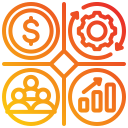
Choose Smart: How to Choose the Right Online Platform for IT Studies
Chosen theme: How to Choose the Right Online Platform for IT Studies. Welcome! Here you’ll find a friendly, practical guide to selecting an online IT learning platform that genuinely fits your goals. Read on, ask questions in the comments, and subscribe for future deep dives.
Map Roles to Skills
Decide whether you are targeting backend engineering, data analytics, cloud operations, security, or UX. Align each role with specific skills—frameworks, languages, tools—and prioritize. Comment your target role, and we’ll help translate it into a concrete skill map.
Translate Skills Into Milestones
Break ambitions into measurable checkpoints: beginner Python scripting, deploying a containerized app, querying datasets with SQL, or passing a cloud practitioner exam. Milestones guide platform selection and pacing. Share two milestones you need within three months.
Choose a Learning Rhythm
Be honest about your weekly capacity and preferred format: sprints, steady pacing, live cohorts, or self-paced. Platforms differ in structure and accountability. Tell us your rhythm, and we’ll recommend formats that respect your time and energy.
Evaluate Curriculum Depth and Freshness
Verify language versions, framework releases, and cloud service updates. Materials should reflect current LTS versions, CLI changes, and deprecations. Ask platforms about their update cadence—and post any vague answers here so the community can help interpret them.

Teaching Quality, Mentorship, and Community
Look for educators with real-world experience shipping systems, analyzing data, or securing infrastructure. Teaching is a craft; industry depth amplifies it. If a bio inspires confidence—or raises doubts—paste it here and we’ll analyze together.
Hands-On Labs, Tooling, and Realistic Environments
Check whether you can spin up containers, databases, or cloud resources safely in-browser. Time-limited environments reduce setup friction and risk. If you’ve hit throttling or odd limits, describe them—others can suggest reliable workarounds.

Hands-On Labs, Tooling, and Realistic Environments
Templates using Docker, devcontainers, or IaC help you learn tooling while avoiding configuration drift. Ask whether starter repos are maintained and version-pinned. Post your repo setup questions, and we’ll troubleshoot together as a community.
Assessment, Feedback Loops, and Credible Signals
Formative Over Punitive
Quizzes and mini-challenges should reveal misunderstandings early and offer guidance. Look for explanations tied to documentation and examples. Post a confusing question you encountered, and the community will unpack it collaboratively.

Inclusive Learning Features
Check captions, transcripts, playback speed, color contrast, keyboard navigation, and screen reader compatibility. These features help everyone. If you discover a thoughtful accessibility touch, share it—small details can change someone’s learning trajectory.
Mobile and Offline Flexibility
Learning continues on commutes and quiet breaks. Look for responsive design, note syncing, and downloadable resources. Comment how and where you study most, and we’ll suggest ways to structure lessons around your reality.
Define Weighted Criteria
List criteria like curriculum freshness, labs quality, mentorship availability, assessment rigor, accessibility, and career artifacts. Assign weights based on your goals. Share your weights, and we’ll sanity-check them together.
Gather Comparable Evidence
Collect syllabus links, lab demos, sample lessons, and community snapshots. Use consistent notes to avoid recency bias. Post your evidence summary, and we’ll help reconcile conflicting signals with constructive, theme-aligned feedback.
Decide, Pilot, Reflect
Pick the top candidate, complete a small module, and review outcomes against your criteria. If alignment feels off, iterate. Tell us your pilot results, and we’ll propose tweaks for a sharper second pass.
A Short Story: The Week Maya Chose Her Platform
Maya wrote, “Become a junior cloud engineer in nine months.” She weighted labs, mentorship, and portfolio artifacts highest. Posting her weights here, she received feedback nudging her to demand stronger incident response practice.

